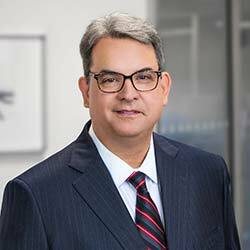WSHB partner Joel Odou and associate Laura Bown secured a tremendous win for the client after arguing a successful motion for summary judgment before the court. In a case involving respondeat superior issues, the court found that the employer was not liable for the tortious actions of an employee that occurred after an off-site work event had ended at a local bar and restaurant.
This case involved an employee who attended an off-site work meeting at Senor Frogs. The meeting was scheduled from 1-4 p.m. During the meeting, some employees consumed alcohol, including the employee involved in the incident in this case. The employee also stayed past the allotted meeting time after the work event had ended. The employee drank four beers while he was at Senor Frogs and was involved in an accident on his way home after 5 p.m.
The court concluded that the meeting at the off-site location was a special assignment that concluded at 4 p.m. It is undisputed that the employee left around 5 p.m. The time that the employee spent at Senor Frogs after the meeting concluded was of his own volition, and not under the employer's control. For that reason, the court ruled that the special assignment ended at 4 p.m. and any action that occurred after that time was not made on behalf of the employer or within the scope of employment.
The court noted that the employer did not provide the alcoholic beverages to the employees and did not mandate that employees attend the event. The employee could have chosen not to drink and not to drive after ingesting four beers. These decisions were made exclusively by the employee and not the employer. Additionally, Nevada does not recognize dram shop liability. For these reasons, the court concluded that the employee's actions were not foreseeable and the employer was not liable for the actions of the employee pursuant to the doctrine of respondeat superior.
To prevail on a theory of respondeat superior, the plaintiff must establish both that:
- The employee who caused the injury was under the employer's control, and
- The act occurred within the scope of the employment. Rockwell v. Sun Harbor Budget Suites, 112 Nev. 1217, 1223, 925 P.2d 1175, 1179 (1996).
Summary judgment in respondeat superior cases may be granted where undisputed evidence establishes the employee's status at the time of the incident was not in the role of employee. Nevada courts have long recognized the “going and coming rule,” which provides that “[t]he tortious conduct of an employee in transit to or from the place of employment will not expose the employer to liability unless there is a special errand which requires driving.” Kornton v. Conrad, 119 Nev. at 125, 67 P.3d at An off-duty employee’s car accident does not give rise to liability under respondeat superior unless the employee is on a special errand which furthers the employer’s interests. Kaye v. JRJ Invs., Inc. 134 Nev. 967 (Nev. App. 2018) citing Kornton v. Conrad, 119 Nev . 123,125 (2003). An employer, however, is vicariously liable for an employee’s intentional tort, even if outside the scope of employment, if the intentional tort was reasonably foreseeable under the facts and circumstances of the case considering the nature and scope of his or her employment, § 41.745(1)(c). Anderson v. Mandalay Corp., 131 Nev. 825, 826, 358 P.3d 242, 243 (2015).
Due to the court's finding that the employee in question was acting independently and not on behalf of the employer or within the scope of his employment at the time of the incident, the court ruled that the tortious act was not reasonably foreseeable. Thus, summary judgment was appropriate in favor of the employer in this case.
Congratulations to Joel and Laura as well as the WSHB Las Vegas office on this fantastic result!

